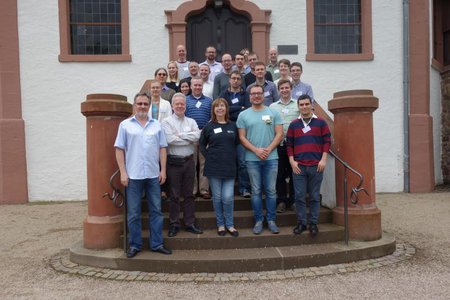The Institute was out in force, with fellows Mike Croucher, Robert Haines and Caroline Jay offering their thoughts on the present and future states of application support, research software engineering, and the role of software as an output of academic research (see these and other contributions on the Workshop Materials page).
The 14 hour days (the final few hours of which were helped along by some excellent German beer) were divided into plenary talks in the mornings and breakout discussions, in a more “unconference” style, in the afternoons. The morning sessions gave people time to present their experiences of, and ideas around, academic software, and the talks inspired topics for the breakouts later in the day.
The afternoon breakout groups were designed to get people working on some of the problems that had been identified right away and produce concrete plans for further collaboration amongst participants. These included a session feeding into the Force 11 Software Citation Principles, the development of a Software Credit Ontology, and the formation of a Research Software Engineering handbook.
Alice Allen, attending to represent the Astrophysics Source Code Library, provides an excellent summary of the daily activities on her blog.
Dagstuhl Workshops are about identifying core challenges in a field and planning for the future, so a key outcome will be a Manifesto, directed towards policy makers, roadmapping the research challenges involved in making progress with academic software development. Further posts on the Manifesto, Report, and other outputs from the workshop will follow soon!
This blog post can also be found at SSI Blog.Photo: Courtesy of Leibniz-Zentrum fur Informatik.

